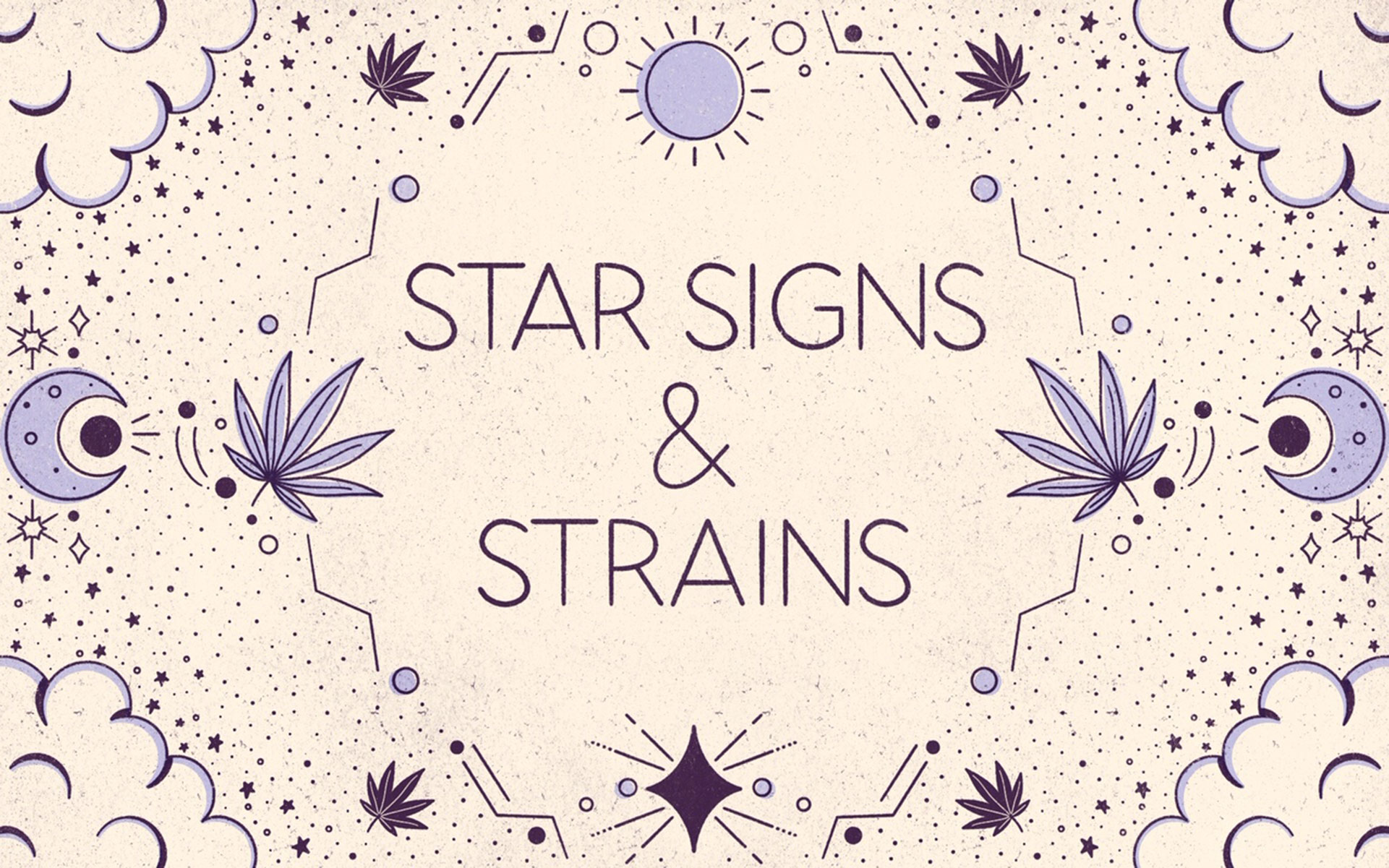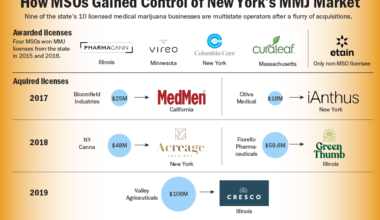The Power of Epigenetics
I’ve always been fascinated by the ways our bodies want to be healthy, and I’ve spent most of my life learning how to help them get there. As an undergraduate, I studied cell and molecular biology. I then became a naturopathic physician—a science-based practitioner who relies on natural methods to restore balance and optimize health. As I worked with patients, I realized that I also needed to become a specialist in environmental medicine, discovering both how the chemicals in our environment undermine our health and what we can do to detoxify our bodies.
What made all my diverse studies come together was the field of epigenetics: the many, many factors that can influence how our genes are expressed. I had always understood how powerful genes can be. But wow, was I thrilled to discover that we don’t have to bow down and submit to our DNA. Instead, we can work with our genes to create optimal health and, in a way, not exacerbate genetic mutations inside our bodies—if only we know how.
One of the most important pieces of the genetic puzzle is a type of variation known as a SNP (pronounced “snip”), which is short for single-nucleotide polymorphism. So far, roughly ten million SNPs have been identified in the human genome, with each of us having over a million. Most of those SNPs don’t seem to affect us very much. Yes, they represent a slight variation or abnormality in various genes, but so far as we know, those variations don’t seem to make much difference in the way our bodies function.
Some SNPs, however, can make a huge difference in our health—and in our personality, as well. For example, SNPs in the MTHFR gene can create a whole host of health problems—everything from irritability and obsessiveness to birth defects and cancer can be a result of an MTHFR gene mutation. (Note that I said can. They don’t have to—that’s what this is all about!) SNPs in the COMT gene can lead to workaholism, sleep issues, PMS, problems with menopause, and again, cancer, along with boundless energy, enthusiasm, and good spirits. (Yes, many SNPs have an upside as well as a downside!)
Health issues that had puzzled my clients for years suddenly made sense when they discovered through our work together that their SNPs had at least partly created those issues. Problems that had seemed overwhelming—even dooming—became manageable as clients learned that they could use diet and lifestyle to reshape their genes’ behavior.
I experienced that kind of aha moment myself when I discovered that I have at least three significant SNPs. I finally understood something about why I’m so focused and determined—some might say obsessive! Remember the MTHFR symptoms I mentioned earlier? I also saw why I can suddenly become irritable at a moment’s notice, and why I react so intensely to certain chemicals and fumes. It was a relief to have this new understanding: things made sense to me in a way they never had before, plus I had some new solutions I could rely on. As you read this, you’ll have the chance to make the same kind of exciting discoveries about yourself.
Most important, learning about my SNPs helped me understand some of the misconceptions about methylation disorders better and empowered me to take charge of my health. Finally, I could support my body and brain with the diet and lifestyle that they needed. For the first time in my life, I felt like I was working at the top of my potential.
I wanted my patients to have the same experience—heck, I wanted everybody to hit that high. So I began to develop a program for cleaning up our “dirty genes”: what we should eat, which supplements could help, and how to create a “clean genes” lifestyle. I wanted us to be like that epigenetically supported mouse, glowing and healthy, no matter which genes life has dealt us. I knew that if I could just delve deeply enough, I’d find the answers.
And now, ten years later, I’m proud to say that I have. Oh, there’s still a ton more I have to learn—the whole field of epigenetics is just getting started, and we’re making new discoveries every day. I spend a big portion of every week doing my own research, and another big chunk of time reading the studies that my colleagues turn out. It’s more than one person could ever keep up with—and that’s the good news. In another ten years, I’m fully confident, we’re going to have the power to take charge of our health in ways we can’t even imagine.
Are Your Dirty Genes Making You Sick?
You’ve probably heard that your genes affect how healthy you can be. Almost certainly, your doctor has told you that because of the conditions that run in your family, you may be vulnerable to heart disease, depression, anxiety, and/or other disorders.
Most of the time, this news makes people feel discouraged. “I’m scared,” they tell me. “My genes are a mess. I’ve just gotta make the best of it.”
No way!
After years of research in the new science of gene abnormalities and methylation disorders, and having successfully treated thousands of clients, including my family and myself, I’m offering you an exciting new approach: a proven method to clean up your genetic limitations and create a healthier, more vibrant you.
So let me say it loud and clear: Your genes are not your destiny! But perhaps you’ve been taught that they are. Perhaps, like most people, you’ve been told that you inherited a “master plan”—characteristics that are written in stone from the moment of your conception until the day you die. In this view, your genes are a stern committee of judges handing down a life sentence.
“Hmm,” your genes seem to say. “Let’s give this woman depression, which she gets from her mother. And let’s throw in some heart disease, which runs on her father’s side. How about adding in a shy, anxious personality, which she gets from her grandmother? We’re almost done, but let’s throw in one more ingredient—a mild case of ADHD, nothing clinical. But, like two of her uncles, she’s always going to have a hard time focusing. There—all done! Good luck, lady! Enjoy the destiny that we’ve written for you, because there is absolutely nothing you can do to change it!”
Pretty bleak, right? Luckily, it’s wrong. Far from being written in stone, your genetic destiny is more like a document written in the Cloud—you get to edit and revise it every moment of your life. Every time you drink a soda, barrel through on four hours of sleep, use a shampoo loaded with industrial chemicals, or hit a stress bomb at your job, you’re putting the negative part of the document in giant type. And every time you eat some organic leafy greens, get a good night’s sleep, use a chemical-free shampoo, laugh with friends, or do some yoga, you’re enlarging the positive part of the document while reducing the negative part—genetic mutations, specifically—to a font so small, it might as well not be there at all.
Your genes don’t lay down the law; they negotiate with you. They don’t even speak with a single voice. They’re a committee, and sometimes they disagree with each other.
Some of the folks on that committee are harsh. They’re constantly shouting, “Heart disease!” or “Depression!” or “Crippling lack of confidence!” And if you don’t know the right way to work with them, those loud, harsh voices might rule the day.
But—and here’s how this is going to change your life—if you do know how to work with your “gene committee,” you can produce a much better outcome. You can get those loud negative voices to tone it down or even shut up completely. At the same time, you can turn up the volume on the voices that are saying, “Balanced mood!” “Healthy heart!” and “Self-confidence!”
So get ready to clean your dirty genes, folks, because that’s exactly what you’re going to do. In the pages to come and in my book Dirty Genes, you’ll find out how to change your genes and make the most of your genetic inheritance, now and for the rest of your life.
Are Your Genes Dirty? Some Common Symptoms
+ Aching joints and/or muscles
+ Acid reflux/heartburn
+ Acne
+ Allergic reactions
+ Anger and aggression
+ Anxiety
+ Attention issues
+ Blood sugar spikes and crashes
+ Brain fog
+ Cold hands and feet
+ Constipation
+ Cravings, especially for carbs and sugar
+ Depression
+ Diarrhea
+ Edginess
+ Fatigue
+ Fibromyalgia
+ Food intolerance
+ Gallstones
+ Gas and bloating
+ Headache/migraine
+ Heart racing
+ Indigestion
+ Insomnia
+ Irritability
+ Itchy skin
+ Menopause/perimenopause symptoms
+ Mood swings
+ Nosebleeds
+ Obesity/weight gain
+ Obsessiveness
+ Overreactive startle reflex
+ PMS / difficult periods
+ Polycystic ovarian syndrome (PCOS)
+ Rosacea
+ Runny nose / congestion
+ Sweating
+ Unexplained symptoms—just “not feeling right”
+ Workaholism
What Your Doctor Won’t Tell You—But I Will
If you’ve had trouble with any of the symptoms I’ve just listed, your doctor might have told you that you’re not really sick. Or maybe you’ve been offered drugs to medicate the symptoms—antibiotics, painkillers, antacids, antidepressants, anti-anxiety medications—without much attention to the underlying issues that produce those symptoms of methylation disorders.
Or perhaps you’ve been one of the lucky ones. Perhaps you’ve found a naturopathic physician, functional/integrative MD, osteopath, nurse practitioner, nutritionist, chiropractor, or other health professional who has helped you restore health and wellness through diet, lifestyle, and other natural means. Even so, your treatment is incomplete if you haven’t learned about dirty genes, the root cause of many of the conditions you’re struggling with.
That’s because epigenetics—modifying genetic expression to improve your life and health—is a cutting-edge aspect of medicine that most practitioners don’t understand. I’m one of the few people who have figured out how to translate genetic research into concrete actions that will improve your health, which is why so many leading health-care specialists come to me for training and advice. That’s why I spend so much of my time lecturing and consulting with physicians and providers—conventional, natural, and otherwise—as well as reading other people’s studies, doing my own research, and helping others regain their health. As a result, the suggestions here are based on the very latest scientific material. Most health-care providers simply aren’t aware of this information, though I’d be willing to bet that in a few years, programs like the one in my book, including answers on how to change your genes, will be widespread, even standard.
Meanwhile, once you understand what makes your genes dirty and how to clean them up, you’ll feel better than you ever thought you could.
Your Dynamic Genes
Remember, every moment of every day, your genes are working on that document about your health. They can write it in a way you like or a way you don’t like—but they’re always writing. And whether you know it or not, so are you.
For example, your genes keep telling your body, “Rebuild your skin!” As you know if you exfoliate, your skin is constantly dying and being replaced. So every moment of every day, your genes are adding to the document, telling your body to get on with the repair.
What kind of document do you think they write if you eat a high-sugar diet, skimp on sleep, or stress yourself out for days on end? Hmm, maybe something like: “Please give this woman dull, lackluster skin with plenty of acne and maybe a touch of rosacea.” On the other hand, provide your genes with healthy fats, plenty of sleep, and time to chill, and you’re going to see a different document: “This one gets healthy, glowing skin that makes her look ten years younger!” Your genes won’t stop writing until the day you die. But what they write is up to you.
Likewise, your genes are constantly producing documents about your gut lining, which is repaired and rebuilt every seven days. If you eat right and live right, you’re going to get away from genetic mutations and have a great document: “Keep that guy’s gut strong and healthy!” If you mess up your genes with poor diet and lifestyle, your document probably says something like: “Since this man is giving me so much extra work to do, I can’t focus on repairing his gut lining. He’s also not providing me the tools I need. So give this man a weak gut lining—the kind that lets food leak through.” Watch out for all the weight gain, immune issues, and other problems that are likely to follow!
Now here’s my personal favorite: the memo about your mind. Those instructions involve neurotransmitters—biochemicals such as serotonin, dopamine, and norepinephrine that govern your thoughts, moods, and emotions. Your brain runs on thousands of biochemical reactions, and there are countless ways the process can go wrong. Your goal is to give your genes whatever they need to produce an uplifting memo: “Keep this person sharp, focused, calm, and full of energy during the day, and relaxed, calm, and ready to sleep at night.” The memo you don’t want mentions forgetfulness, depression, anxiety, irritability, insomnia, addictions, and brain fog.
So yes, your genes write your life memo. But what they write is largely up to you. Sound good? Then let’s get started.
How Gene Mutations Mess with Your Health
Most likely, neither you nor your doctor is used to thinking about your genes as an active, dynamic factor affecting your present-day health. Instead, your genes seem like an unchangeable, unavoidable set of hard-wired instructions passed on from your parents at the moment of conception.
I want you to shift that mindset. Instead of seeing your genetic inheritance as a fixed set of instructions from the past—instructions written on a stone tablet handed down from the ancestors—I want you to see your genes as active participants in your daily health. Right now, while you’re reading this, thousands of genes throughout your body are giving instructions—to your brain, digestive tract, skin, heart, liver, and many other aspects of your anatomy. Those genetic instructions shape every facet of your experience and your health, and your genes are handing them out every single second. With every breath you take, every object you touch, every thought you have, you give your genes instructions—and they respond, leading to epigenetic changes.
Let’s say you eat a big lunch—too big, more than your body can handle. Oops! Your genes are overloaded. They stagger under the burden of all that food. They tell your metabolism to slow way down. They have trouble methylating—a key process that facilitates at least two hundred functions in your body, from skin repair, digestion, and detoxification to mood balance and clear thought. Because of the challenge posed by that overly large meal, hundreds of instructions are being given differently—and badly. You might promise yourself to eat light that night to make up for it, and maybe you even will. But that won’t prevent the damage you inflicted at lunchtime, when you didn’t give your genes the conditions they needed to do their job.
Or let’s say you stayed up late last night, playing a video game or answering email or binge-watching your favorite show. Now the alarm is going off and you can barely drag yourself out of bed. “I’ll make up for it this weekend,” you promise yourself—and maybe you will. Meanwhile, though, your genes are living in the present, and they aren’t happy about the lack of sleep. They give instructions that alter your digestion, your mood, your metabolism, and your brain, so that right now—not when you were first born, but now—your health shifts and slips and declines a little bit.
Of course, if most of the time you’re eating well and sleeping deeply and limiting your toxic exposure and managing your stress, an occasional big meal or late night doesn’t make all that much difference. Sure, your genes alter their responses for a little while, but your body is strong and resilient, and it can handle the extra challenge. If one gene staggers, a second one steps up. If that second gene stumbles, a third one takes over. Your body has lots of built-in backups, which is terrific.
However, if you consistently give your genes poor working conditions, they’re going to consistently hand out poor instructions and may result in methylation disorders in the process. Why? Because each backup gene is going to push on the next backup gene, one after the other after the other, and before you know it, too many of your genes are struggling. Your health will suffer, and in way too many cases your doctor won’t be able to do much more than prescribe a few drugs to medicate your symptoms.
I want something better for you—a lot better. I want you to give your genes exactly what they need to hand out the instructions for perfect health. I want your first-line genes working optimally as often as possible, putting the least possible strain on your backups. I want all your genes cooperating smoothly to give you glowing skin and a healthy weight and tons of energy and a clear, sharp mind. I want you feeling calm and enthusiastic and ready to go, and I want you sleeping so deeply at night that you wake up each morning feeling terrific. If you want that for yourself, listen up: The way to get optimal health is by supporting your genes.
Two Types of Dirty Genes
You have two types of dirty genes—both of which can give you a host of symptoms and disorders.
Some Genes Are “Born Dirty”
The scientific name for a born-dirty gene is genetic polymorphism, which is a fancy way of saying “genetic variation” or “genetic mutations” in some cases. As we saw in the introduction, these genes are also called single-nucleotide polymorphisms, or SNPs—pronounced “snips.” These dirty genes—and each of us has several—can do a full-scale number on your body and your brain. They help determine whether you’re heavy or slim, sluggish or energized, depressed or optimistic, anxious or calm.
We have about twenty thousand genes in our body. There are more than 10 million known genetic polymorphisms (SNPs), and one person can have as many as 1.2 million of them. However, only about 40,000 are known to potentially alter your genetic function. We’re going to zero in on the key SNPs in the seven genes most likely to have the biggest impact on your health. I chose these Super Seven because each of them influences hundreds of other genes. If any of these seven genes are dirty, you can be sure they’re making your other genes dirty, too.
When my clients first discover that they were born with SNPs, many of them are upset. As Taylor said, “I feel like a mutant.” But in fact, we’re all mutants—that is, every one of us is loaded with SNPs. It’s just part of the magnificent variety of the human race—what enables each of us to be unique.
The good news is that once you know which SNPs you have, your health issues start to make a lot more sense—and your emotional issues do, too. If you suffer from migraines, can’t seem to fall asleep at night, or struggle with a hair-trigger temper, SNPs may be at the root of your problem and hasten the development of methylation disorders. SNPs also contribute to anxiety, depression, irritability, workaholism, obsessiveness, difficulty paying attention, trouble winding down, and a whole bunch of other things that you might never have realized had a genetic and biochemical basis. SNPs also contribute to various strengths, such as boundless energy, good spirits, enthusiasm, dedication, determination, and laser-sharp focus.
The really good news is that you get to work with your SNPs, turning up the volume on your strengths and turning down the volume on your weak points. Through the Clean Genes Protocol, you can alter your lifestyle, diet, and environment to maximize the positives and mute the negatives, so that what you once thought was “normal” for you may be nothing of the kind. How awesome is that?
Some Genes Just “Act Dirty”
Sometimes a gene without a SNP creates problems for you anyway. That might be because your genes aren’t getting the nutrients, lifestyle, or environment that they need to function at their best—too few vitamins, too little sleep, too many chemicals, too much stress. A better diet and lifestyle might inspire your genes to behave differently.
The scientific name for this is genetic expression: the way your genes express themselves in response to your environment, diet, lifestyle, and mindset. Depending on which of your genes are expressed, and how, you can be healthy, energized, and glowing. Alternatively, you might be loaded down with a whole slew of symptoms: obesity, anxiety, depression, acne, headaches, fatigue, achy joints, poor digestion. If your genes act dirty enough, you might even face such serious conditions as autoimmune disorders, diabetes, heart disease, cancer and other forms of genetic mutations. Once again, your Clean Genes Protocol comes to the rescue. If you give your genes the diet and lifestyle that they need, they’ll act clean instead of dirty, and you can optimize your health, your mental outlook, and your life.
Meet Your Dirty Genes
Here are the seven genes—I call them the Super Seven—that we target with the Clean Genes Protocol. I chose them because they’re extremely common, have been well researched, and have the most far-reaching effects on your body. If these guys are dirty—whether born dirty or just acting dirty—the rest of your genes will be gunked up, too. Some genetic mutations are hard to scrub. Not these seven. They are easily cleaned up through diet and lifestyle changes. Being born with dirty genes has an upside as well as a downside.
Born-dirty genes might put you at risk for some nasty health challenges— but they also help to shape your personality, activating strengths as well as weaknesses. Your goal is to work with diet, chemical exposure, and lifestyle to maximize the benefits while minimizing the drawbacks.
1. MTHFR, the methylation master gene
This gene initiates your ability to methylate, a key process that affects your stress response, inflammation, brain chemistry, energy production, immune response, detoxification, antioxidant production, cell repair, and genetic expression, which, if not taken care properly, could lead to methylation disorders.
When MTHFR is born dirty:
+ Strengths: intensity, alertness, productivity, focus, improved DNA repair, decreased risk of colon cancer
+ Weaknesses: depression, anxiety, autoimmunity, migraines, increased risk of stomach cancer, autism, pregnancy complications, Down syndrome, birth defects, and cardiovascular conditions such as heart attack, stroke, and thrombosis
2. COMT, the gene whose SNPs help determine whether you’re focused and buoyant, or laid-back and calm
COMT and its SNPs have powerful effects on mood, focus, and how your body handles estrogen, a key factor in the menstrual cycle, in fibroids, in some estrogen-sensitive cancers and other genetic mutations.
When COMT is born dirty:
+ Strengths: focus, tons of energy and alertness, good spirits, glowing skin
+ Weaknesses: irritability, insomnia, anxiety, fibroids, increased risk of estrogen-sensitive cancers, test anxiety, neurological disorders, migraines, PMS, impatience, vulnerability to addictions
3. DAO, the gene whose SNPs can make you super sensitive to certain foods and chemicals
When this gene is dirty, aside from the development of methylation disorders, it affects your response to the histamine that lurks in various foods and beverages and that’s also produced by some gut bacteria, affecting your likelihood of food sensitivities and allergic reactions.
When DAO is born dirty:
+ Strengths: immediate awareness of allergens and trigger foods (so you can get them out of your diet before they cause serious long-term problems)
+ Weaknesses: food sensitivities, pregnancy complications, leaky gut syndrome, allergic reactions, the risk of more serious conditions such as autoimmunity
4. MAOA, the gene that affects mood swings and carb cravings
This gene helps govern your levels of dopamine, norepinephrine, and serotonin: key brain chemicals that affect mood, alertness, energy, vulnerability to addictions, self-confidence, and sleep.
When MAOA is born dirty:
+ Strengths: energy, self-confidence, focus, “highs” of productivity and joy
+ Weaknesses: mood swings, carb cravings, irritability, headaches, insomnia, addictions
5. GST/GPX, the gene(s) that can create detox dilemmas
A dirty GST or GPX affects your body’s ability to rid itself of chemicals.
When GST/GPX is born dirty:
+ Strengths: immediate awareness of potentially harmful chemicals (before they have the chance to make you really sick), improved response to chemotherapy
+ Weaknesses: supersensitivity to potentially harmful chemicals (with responses ranging from mild symptoms to serious autoimmune disorders and cancers), increased DNA damage (which increases the risk of cancer)
6. NOS3, the gene that can create heart issues
NOS3 affects your production of nitric oxide, which is a major factor in heart health, affecting such processes as blood flow and blood vessel formation.
When NOS3 is born dirty:
+ Strengths: decreased blood vessel formation (angiogenesis) during cancer, which reduces the growth of cancer
+ Weaknesses: headaches, high blood pressure, vulnerability to heart disease and heart attack, dementia
7. PEMT, the gene that supports your cell membranes and liver
This gene affects your body’s ability to produce phosphatidylcholine, an essential compound that you need to maintain cell membranes, bile flow, muscle health, and brain development.
When PEMT is born dirty:
+ Strengths: more support for methylation, better response to chemotherapy
+ Weaknesses: gallbladder disorders, small intestine bacterial overgrowth (SIBO), pregnancy complications, cell membrane weakness, muscle pain
What Makes Your Genes Act Dirty?
Even if you don’t have a SNP in any of your seven key genes, you might still be gunking up those genes with the wrong diet and lifestyle, which are two of the main factors that fuel genetic mutations. As a result, they can’t do the jobs you desperately need them to do—metabolize nutrients, balance your brain chemistry, repair damaged cells, and a hundred and one other tasks. What happens? You gain weight, feel sluggish, get depressed, become anxious, lose your ability to focus, develop acne, get headaches… the dirty list goes on and on.
If you’re taking antacids, for example, you’re messing with many major genes, including MTHFR, MAOA, and DAO. If you’re taking metformin, a common medication for diabetes, you’re disrupting the function of your MAOA and DAO. Birth-control pills, hormone replacement therapy, and even bioidentical hormones can strain your MTHFR and COMT.
Even if you’re not taking medications, your genetic expression can be disrupted by poor diet, lack of exercise, too much exercise, not enough sleep, environmental toxins, and plain old everyday stress—and those are just the most common problems. Long story short, there’s a whole laundry list of factors that might be dirtying up your genes—and your doctor probably has no idea.
To make matters worse, every additional factor that makes your genes dirty changes the whole picture and may even cause you severe forms of methylation disorders. So if you’re only eating too much sugar, that’s one problem. But if you’re also eating too many carbs, now you have two problems—and a much wider and more complex effect. If, in addition, you’re not getting good sleep, you’ve just created more damage. That plus stress—even more! Pretty soon, you’ve generated a cumulative effect that makes the whole problem even worse. Instead of 1 + 1 + 1 + 1 = 4, you get 1 + 1 + 1 + 1 = 50.
Why? Because all your genes interact with one another. When one gene gets dirty, it doesn’t work properly, so several more genes step up to help—and now suddenly they get dirty, too. Your body isn’t a set of discrete compartments that each work separately. It’s one amazing interactive system in which problems spread and multiply with amazing speed. The good news is that health can also spread and multiply in amazing ways. When you clean up your dirty DNA mutations, you start feeling terrific in ways you never even imagined. Your mood improves—and that chronic muscle pain you’ve been working through stops aching. Your brain fog clears—and you’ve got tons more energy. Your allergy symptoms disappear—and you begin to lose some weight.
This is why I’m so eager for you to clean up your genes so you can avoid genetic mutations. If your dirty genes were born clean but became dirty, cleaning them up gives you a tremendous boost. And if some of your genes were born dirty, giving them the support they need can make a world of difference.
What Dirties Up Your Genes?
Diet
+ Too many carbs
+ Too much sugar
+ Too much protein
+ Not enough protein
+ Not enough healthy fat
+ A shortage of nutrients that your genes need to work properly, such as B vitamins, vitamin C, vitamin D, copper, and zinc
Exercise
+ Sedentary lifestyle
+ Overtraining
+ Electrolyte deficiency
+ Dehydration
Sleep
+ Not enough deep, restorative sleep
+ Going to bed late, getting up late
+ Irregular sleep patterns
Environmental Toxins
+ “Dirty” food
+ “Dirty” water
+ “Dirty” air—including indoor air
+ “Dirty” products: sprays, cleaners, cosmetics, paints, pesticides, herbicides
Stress
+ Physical stress: long-term illness, chronic infections, food intolerance/allergies, insufficient sleep
+ Psychological stress: issues at work, at home, with your loved ones, with life
The Clean Genes Protocol: How to Change Your DNA
Following is your Clean Genes Protocol—a lifelong program to keep your genes clean and avoid bad genetic change as you optimize your health.
Although you may periodically add in Spot Cleaning from the second step of the program, which is outlined in my book, this is the approach to diet and lifestyle that will best support your genes for the rest of your life. Here the Clean Genes Protocol is outlined in broad brush strokes, as an introduction. Fear not, though: my book Dirty Genes addresses all the components—diet, exercise, and so on—in greater detail.
Diet
+ Eat appropriate amounts of protein and healthy fat.
+ Make sure to get all the nutrients that your genes need to work properly, such as B vitamins, vitamin C, copper, and zinc.
+ Cut out cow’s milk dairy, gluten, excess carbs, and white sugar.
+ Avoid foods high in pesticides, herbicides, preservatives, and/or artificial ingredients.
+ Avoid fermented foods, leftovers, or food that’s likely to contain excess bacteria if you find they trigger symptoms.
+ Avoid foods that are high in histamines: wine, some types of cheese, and smoked and/or preserved meat and fish, if you’re particularly susceptible.
+ Eat in moderation: stop eating when you’re 80 percent full.
+ Avoid snacks and late-night meals.
Exercise
+ Get the right amount of exercise for your body—not too much and not too little.
+ Exercise when you’re rested and only until you’re pleasantly tired. Don’t exhaust yourself, and don’t force it.
+ Exercise when it doesn’t negatively impact your sleep. Don’t skimp on sleep to exercise; don’t exercise later in the evening if it keeps you from falling asleep.
Sleep
+ Make trying for deep, restful sleep a priority.
+ Consistently match your sleep schedule to nature’s circadian rhythms: asleep by 10:30 p.m., awake seven to eight hours later.
+ Avoid electronic screens in the hour before bed.
+ Block out or turn off artificial lights. Natural moonlight is great.
Environmental Toxins
+ Eat organic food or at least avoid the “dirtiest” conventional foods.
+ Filter the water you use for drinking, cooking, and bathing.
+ Avoid the use of household and garden chemicals.
+ Avoid all plastic containers for your food and water, especially BPA plastic and especially in the microwave. Ideally, store and cook foods only in glass or stainless steel.
+ Follow guidelines to keep indoor air clean, bearing in mind that indoor air is often more toxic than the air outdoors.
Stress
+ Attend to sources of physical stress: long-term illness, chronic infections, food intolerances/allergies, insufficient sleep.
+ Reduce and relieve psychological stress: issues at work, at home, with your loved ones, with life.
Profiles and Personalities
Any one gene is just a single factor in your genetic profile—let alone in your entire personality. But to give you some idea of how your genetic profile might help shape your temperament, here are some quick personality sketches that I’ve observed in conjunction with the seven key genes when they’re dirty:
MTHFR
Among the many MTHFR symptoms are the changes in one’s mood. Some days you’re blue and depressed, while other days you’re anxious. On good days, your focus is great and you get stuff done. On bad days, you have performance anxiety, a hair-trigger temper, and/or headaches—or maybe you just feel grumpy. After eating a salad you tend to feel great, but you’ve never paid attention to that because, after all, it’s just a salad.
COMT (Slow)
Man, you’re on fire! ADHD?—not in this house. You’re cranking away on several projects and already eager for the next one or five. As you lie down to sleep, you’re still cranking away. After tossing and turning, you finally doze off, dreaming of tomorrow’s tasks. Tomorrow arrives. Coffee is needed. Once again, you’re off and running. You put pressure on yourself, and if you’re not accomplishing what you need to, anxiety sets in, so you focus harder to get everything done. And you do get it done. Your colleague makes fun of you for working overtime on a particular project, and you snap at her. As usual, you’re quick to be irritated. In addition, sometimes you have an extreme sensitivity to pain and can be plagued with headaches.
COMT (Fast)
Look at that blinking light! Did you see that dog over there? Man, I wish I could read a book, but I just can’t focus. You’re always jumping from one task to another, and it’s hard to get much done. Friends have suggested that you might have ADHD. You also love shopping and buying new things! The problem is, you feel great buying them, but the next day the “shopping high” wears off, and you find that you need to buy something else or you start feeling blue. It’s getting expensive and time-consuming. Oh—and hugs! They’re awesome! The more hugs you get, the better you feel.
DAO
You are so tired of not knowing what you can and can’t eat. One meal you’re good, and the next you feel awful: throbbing head, irritable mood, sweaty body, racing heart, itchy skin, bleeding nose. Perhaps you’ve even spent a ton of money on food allergy testing—and found nothing! So frustrating. You keep limiting your foods one by one in hopes of identifying the culprit, but it’s a never-ending battle.
GST/GSX
Ever since you figured out that chemicals and smells make you feel sick, you’ve been on a mission to get rid of such stuff from your home. That neighbor of yours is using scented dryer sheets—again! Those give you a headache within seconds. Your friends wonder why you’re such a clean freak. But you know that you’re tuned in and sensitive to these things because you have to be.
MAOA (Fast)
Carbs. CARBS! Pleeease, get me some of those! Your grocery cart looks like you work for the grain and chocolate industry! You feel so great eating carb-laden foods. You know you shouldn’t, but when you don’t, you feel blue. The problem is, eating carbs picks you up only for a moment or two; then you crash. So what do you do then? You eat more carbs. You try diet after diet, but they just make you feel depressed. You’re sick of gaining weight, but you feel stuck in that pattern. You don’t want to be on antidepressants, but you feel like you can’t keep going this way.
MAOA (Slow)
You’re easily startled and quick to become anxious or irritated. You can become aggressive and later feel bad for overreacting. You just can’t seem to help it. You always have to watch out for headaches, especially when you eat cheese or chocolate and drink wine. Falling asleep at night is always tough, but once you do, at least you sleep soundly through the night.
NOS3
You’re freaking out. Your dad, uncle, grandma, and grandpa all had significant heart problems when they were around fifty years old, and now you’re getting there. Your doctors check your heart and say it looks okay—but are they checking everything they need to, or are they missing something? Your hands and feet are constantly cold, but your doctors say that’s nothing to worry about. You need answers, because this family history is weighing on you.
PEMT
Ever since you switched to a vegan or vegetarian diet, you’ve felt just a bit off. Your mind isn’t as sharp, you’re forgetting things, and you’ve got aches and pains all over your body. As an omnivore, you felt good overall, though you did have some aches and pains. Your liver felt heavy then, and it still does—just under your right-side ribcage. Fatty foods just don’t sit right with you either. Now your doctor has said that you have gallstones and need to have your gallbladder taken out. No! There must be a way to save it.
What’s Your Genetic Profile?
If you want to know your own genetic profile, there are a few ways to go about it. The most expensive route is to get yourself tested by a company like 23andMe or Genos Research. At that point, you’ll know exactly where all your SNPs are—but you won’t necessarily know what those results mean.
Another route is to invest four weeks in my book’s Clean Genes Protocol. Most people I know, including health professionals, get genetic testing results back and focus only on the genes. The problem is, that genetic report is a piece of paper showing your genetic susceptibility—not your genetic destiny! In other words, your genetic profile is not you.
Most of the folks who send away for genetic testing are unaware that a gene born clean can easily become dirty. When they read that their MTHFR is normal, they celebrate instead of realizing that—due to diet and lifestyle—it might in fact be super dirty.
Even if your MTHFR was born dirty or you are showing no symptoms of an MTHFR gene mutation, you don’t want to make the common mistake of thinking that you can target it with a magical methylfolate supplement or nutrition vitamin B12 supplement and all will be well. Many of the people who send away for their genetic profile end up following simplistic instructions for MTHFR treatment, thereby creating significant side effects and making themselves worse off than they were before.
Here’s the bottom line: the only way to truly help your dirty genes is by remaining on the Clean Genes Protocol, a lifelong approach to diet and lifestyle, including a specific MTHFR diet. That’s how I do it. That’s how my family does it. That’s how the doctors I’ve trained around the world encourage their patients to do it. The result? Healthier, happier lives. I’ll tell you what I tell all of them: there are no shortcuts. The tortoise always wins the race.
Because your genes can give you problems whether they’re born dirty or simply acting dirty, I want you to know how to keep all seven of these important genes clean and healthy, giving them all the support they need. Out of the roughly twenty thousand genes in your body, these seven are critical to optimal health, every day of your life.
When I say you’re going to scrub your dirty genes clean, I’m not saying that you’re going to change your basic personality or remove all medical risk. I’m saying that you’ll learn to work with your genes, giving them all the support they need. That way, you can celebrate your unique temperament—and safeguard your health from genetic mutations.
Every vehicle drives differently. By understanding your genetics, you gain the opportunity and ability to make choices that will give you a smooth and enjoyable ride throughout your life.
Excerpted with permission from Dirty Genes: A Breakthrough Program to Treat the Root Cause of Illness and Optimize Your Health by Dr. Ben Lynch. Available online at Amazon.com.
Medical Disclaimer:
The information provided in these blog posts is intended for general informational and educational purposes only. It is not a substitute for professional medical advice, diagnosis, or treatment. Always seek the advice of your physician or other qualified healthcare provider with any questions you may have regarding a medical condition. The use of any information provided in these blog posts is solely at your own risk. The authors and the website do not recommend or endorse any specific products, treatments, or procedures mentioned. Reliance on any information in these blog posts is solely at your own discretion.








